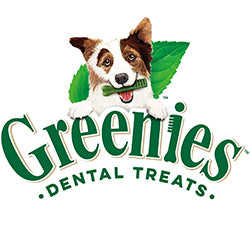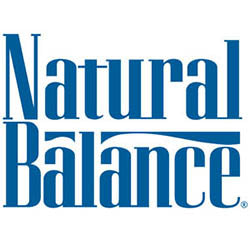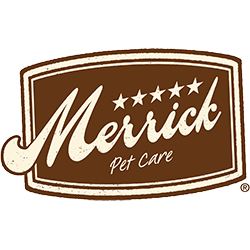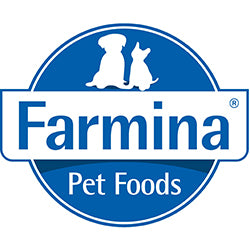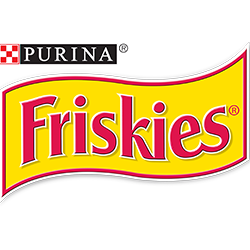
Pet Care and Health
Pets are involved in our lives; they are members of our families. As pet owners, we are responsible for ensuring they receive the best care possible. This includes caring for their health, diet, nutrition, exercise, grooming, and medical conditions. This blog post will discuss these topics in detail and provide tips and recommendations for pet owners to ensure their pets live long, healthy, and happy lives.
Diet and Nutrition
A pet's diet and nutrition are critical to its health and well-being. As pet owners, we must make sure that they receive a well-balanced and nutritious diet. A balanced diet will give your pet the essential nutrients, vitamins, and minerals to support their growth, development, and overall health.
There are two types of diets for pets: commercial and homemade. Commercial diets come in dry food, wet food, or semi-moist food. These diets are designed to meet your pet's nutritional needs and are easy to prepare. Homemade diets, however, require more preparation and planning but can provide your pet with a more personalized and customized diet.
When choosing a commercial diet, it is essential to consider the ingredients used. Look for diets that contain high-quality protein sources, such as meat, fish, or poultry, and avoid diets that contain fillers or artificial preservatives. Consider your pet's age, size, and activity level when selecting a diet. Puppies, kittens, and seniors may have different nutritional requirements than adult pets.
If you choose to feed your pet a homemade diet, it is essential to talk with a veterinary to ensure that the diet is balanced and meets your pet's nutritional needs. Homemade diets may also require supplements to ensure your pet receives all the necessary vitamins and minerals.
Exercise
Exercise is essential for a pet's physical and mental health. Regular exercise can help to prevent obesity, improve cardiovascular health, and reduce stress and anxiety. The type and amount of exercise required will depend on your pet's age, size, breed, and activity level.
Dogs require daily exercise, including walks, runs, or playtime in the backyard. The amount of training needed will depend on your dog's age and breed. For example, a high-energy breed like a Border Collie will require more exercise than a smaller, less active breed like a Shih Tzu. Conversely, cats may require less structured training but will still benefit from playtime and toys that encourage them to move and play.
Grooming
Grooming is an essential aspect of pet care. It not only helps to keep your pet looking and smelling good, but it can also help to prevent health problems. Regular grooming can help to avoid skin irritations, infections, and other skin and coat problems.
Your pet's grooming needs depend on breed, coat type, and activity level. Dogs with long, thick coats require more frequent grooming than those with short, smooth coats. Cats with long hair will also require more grooming than cats with short hair. Regular grooming should include brushing, bathing, nail trimming, and ear cleaning.
Medical Conditions
Pets can suffer from various medical conditions, including allergies, dental problems, and chronic conditions like arthritis. As pet owners, it is essential to be aware of these conditions' signs and symptoms and seek veterinary care when necessary.
Allergies are a common problem in pets and can be caused by various environmental or dietary factors. Signs of pet allergies include itching, redness, and skin inflammation. Treatment for allergies may include changes to the diet or environment and medication to manage the symptoms.
Dental problems are also common in pets and can lead to very serious health problems if left untreated. Signs of dental problems include bad breath, difficulty eating, and swollen gums. Regular dental checks and cleanings can help prevent dental problems and keep your pet's teeth and gums healthy. Chronic conditions like arthritis can be managed with medication, weight management, and other lifestyle changes. Early detection and treatment of these conditions can help your pet maintain its quality of life.
Diet and Nutrition
A pet's diet and nutrition are critical to its health and well-being. As pet owners, we must make sure that they receive a well-balanced and nutritious diet. A balanced diet will give your pet the essential nutrients, vitamins, and minerals to support their growth, development, and overall health.
There are two types of diets for pets: commercial and homemade. Commercial diets come in dry food, wet food, or semi-moist food. These diets are designed to meet your pet's nutritional needs and are easy to prepare. Homemade diets, however, require more preparation and planning but can provide your pet with a more personalized and customized diet.
When choosing a commercial diet, it is essential to consider the ingredients used. Look for diets that contain high-quality protein sources, such as meat, fish, or poultry, and avoid diets that contain fillers or artificial preservatives. Consider your pet's age, size, and activity level when selecting a diet. Puppies, kittens, and seniors may have different nutritional requirements than adult pets.
If you choose to feed your pet a homemade diet, it is essential to talk with a veterinary to ensure that the diet is balanced and meets your pet's nutritional needs. Homemade diets may also require supplements to ensure your pet receives all the necessary vitamins and minerals.
Exercise
Exercise is essential for a pet's physical and mental health. Regular exercise can help to prevent obesity, improve cardiovascular health, and reduce stress and anxiety. The type and amount of exercise required will depend on your pet's age, size, breed, and activity level.
Dogs require daily exercise, including walks, runs, or playtime in the backyard. The amount of training needed will depend on your dog's age and breed. For example, a high-energy breed like a Border Collie will require more exercise than a smaller, less active breed like a Shih Tzu. Conversely, cats may require less structured training but will still benefit from playtime and toys that encourage them to move and play.
Grooming
Grooming is an essential aspect of pet care. It not only helps to keep your pet looking and smelling good, but it can also help to prevent health problems. Regular grooming can help to avoid skin irritations, infections, and other skin and coat problems.
Your pet's grooming needs depend on breed, coat type, and activity level. Dogs with long, thick coats require more frequent grooming than those with short, smooth coats. Cats with long hair will also require more grooming than cats with short hair. Regular grooming should include brushing, bathing, nail trimming, and ear cleaning.
Medical Conditions
Pets can suffer from various medical conditions, including allergies, dental problems, and chronic conditions like arthritis. As pet owners, it is essential to be aware of these conditions' signs and symptoms and seek veterinary care when necessary.
Allergies are a common problem in pets and can be caused by various environmental or dietary factors. Signs of pet allergies include itching, redness, and skin inflammation. Treatment for allergies may include changes to the diet or environment and medication to manage the symptoms.
Dental problems are also common in pets and can lead to very serious health problems if left untreated. Signs of dental problems include bad breath, difficulty eating, and swollen gums. Regular dental checks and cleanings can help prevent dental problems and keep your pet's teeth and gums healthy. Chronic conditions like arthritis can be managed with medication, weight management, and other lifestyle changes. Early detection and treatment of these conditions can help your pet maintain its quality of life.
- Choosing a selection results in a full page refresh.




